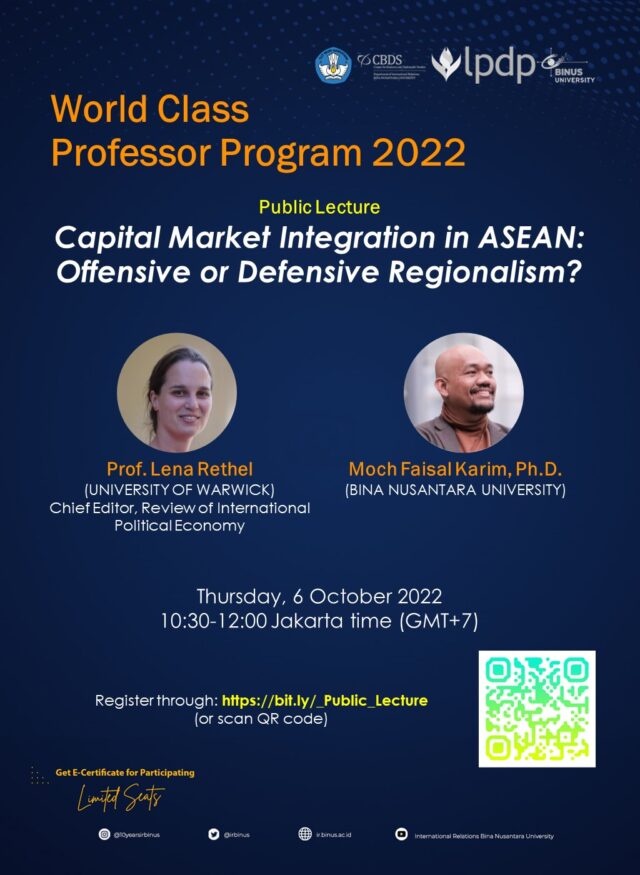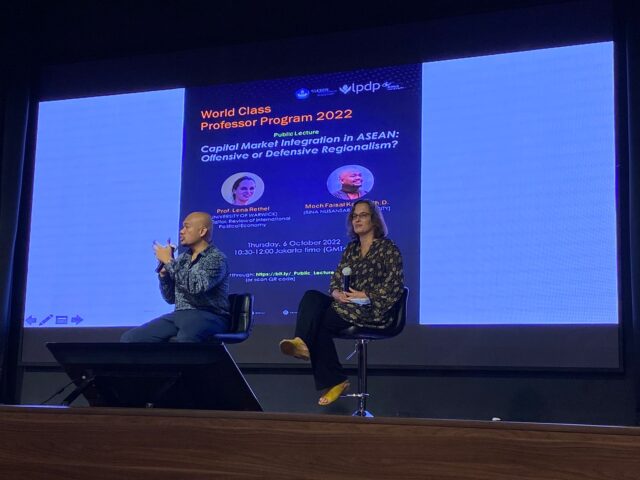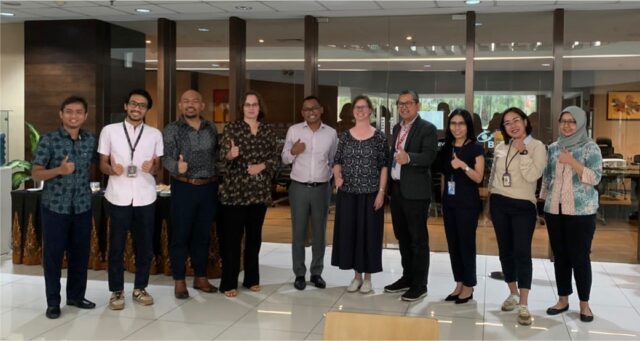Public Lecture on the Capital Market Integration in ASEAN

On Thursday 6 October 2022, 10:30-12:00 Jakarta time, Indonesia, Binus University’s Department of International Relations through the Binus University Center for Business and Diplomatic Studies (CBDS) held a Public Lecture which is part of the World Class Professor Program 2022 sponsored by the Indonesian Directorate General of Higher Education (DIKTI). This Public Lecture which was held at the Binus University Auditorium, Anggrek Campus, brought the topic “Capital Market Integration in ASEAN: Offensive of Defensive Regionalism?” by bringing back Prof. Lena Rethel, Chief Editor of the Review of International Political Economy Journal of the University of Warwick.

The event was opened with remarks by Prof. Tirta Mursitama as Vice Chancellor of Research and Technology Transfer at Binus University and was attended by around 2,000 participants who joined via the Zoom meeting platform and were present at the Auditorium.
Prof. Rethel presented a presentation entitled “Defensive or offensive regionalism? The politics of capital market integration in Southeast Asia”. Starting with a research puzzle that emphasizes the differences between ASEAN and the European Union in terms of the approach of the two regions to the legal framework for capital market integration and the skepticism of the policy makers, Prof. Rethel emphasized that ASEAN- is starting to show a greater move towards capital market integration, although tentatively.

For Prof. rethel, finance and financial cooperation have played an important role in the ASEAN regional project, but the institutionalization of regional financial cooperation remains shallow; progress dependent on bi- and minilateral agreements and unilateral concessions. Prof. Rethel emphasized the defensive characteristics of ASEAN regionalism. However, she claimed, whilst defensive regionalism perspectives offer important insights into the regional projects, including its financial dimensions, the story is also more complex, with regard to both external and internal relations. Prof. Rethel closed his presentation by stating that “researching Southeast Asian political economy is far from straightforward but also intellectually very rewarding; being open in terms of disciplinary and methodological approaches helps – and so does developing backup plans!”

